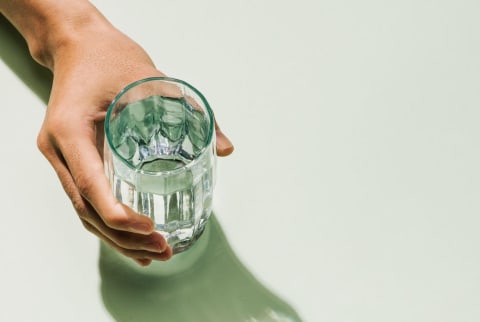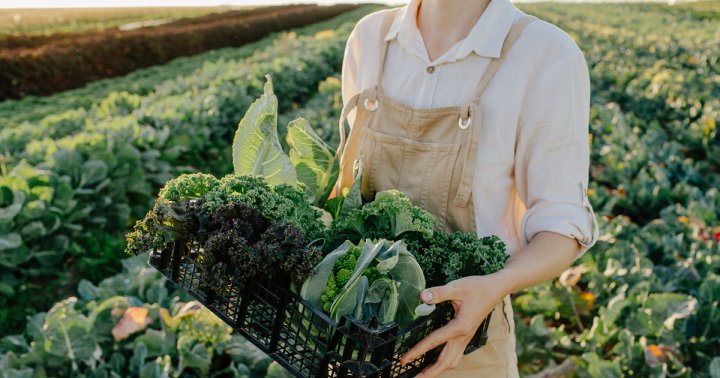The Underrated Food A Functional MD Says Makes You Instantly Hydrated
Thirst-quenching like no other.

Advertisement
This ad is displayed using third party content and we do not control its accessibility features.

Former Senior Beauty & Lifestyle Editor
Former Senior Beauty & Lifestyle Editor
Jamie Schneider is the former Senior Beauty Editor at mindbodygreen. She has a B.A. in Organizational Studies and English from the University of Michigan, and her work has appeared in Coveteur, The Chill Times, and Wyld Skincare.
Image by Marc Tran / Stocksy December 24, 2024 We carefully vet all products and services featured on mindbodygreen using our Our selections are never influenced by the commissions earned from our links. When the term "hydrating foods" comes to mind, you might instantly conjure those watery fruits and veggies, like cucumbers, watermelon, and jicama. Juicy, fresh, and thirst-quenching like no other. But wait—there's another player to add to the hydrating foods roster, and it may just trump them all: chia seeds. "Those are the stars of the hydrating show," Dana Cohen, M.D., integrative medicine physician and co-author of Quench, says on the mindbodygreen podcast.
What makes chia seeds so good for hydration
Quick science lesson: You know when you add water to chia seeds and they form into a gel? Well, that glob happens when H2O molecules layer upon one another, which is what forms that slimy substance. That slime is actually called "structured" or "gel" water1, known by some experts as the fourth phase of water, as it exists in between solid and liquid.
"It is in that form that's found in nature, and it's also in that form that's found within our cells," Cohen adds, which is precisely what makes the gel so hydrating. (Note: You can also find gel water in cucumber seeds, which is what makes them star hydrators, too.)
Chia seeds are also full of fiber, which is why they can absorb up to 10 to 12 times their weight in water2. "The fiber is what really acts as a sponge," Cohen notes. In fact, she tells us that her co-author, cultural anthropologist Gina Bria, suggested her mother (who was suffering from overt dehydration) put chia seeds in her orange juice every morning. "She never became dehydrated again, because it held onto the hydration better," Cohen recounts. Of course, this is no clinical trial—just one person's success story—but the science behind it makes sense.
There's also some anthropological evidence at play here: The Tarahumara tribe of Mexico, known for their incredible endurance running skills, frequently drink chia seeds with their water, as award-winning journalist Christopher McDougall reported in his ethnographic work, Born To Run.
"They would run these 50-mile marathons with chia seeds," says Cohen, a beverage known as iskiate. "It's the chia seeds that are holding on to that hydration much better than just plain bulk water alone," she adds.
How to add chia seeds to your beverages
Easy: Just pour a heaping spoonful of chia seeds into your drink and let it soak for at least 20 minutes, then gulp it down. You can add chia seeds to plain water, coconut water, or juice, or you can even stir them into your soups and smoothies. (See here for Cohen's go-to green smoothie for max hydration.)
Incorporating chia seeds into your meals is also a great way to get more of this hydrating superstar. Of course, you can whip up a tasty chia pudding by mixing it with milk or plant-based milk and letting it set overnight (here are some delicious recipes for a more hearty breakfast), and you can also create "chia eggs" as an egg replacement that lends the same fluffy texture (like in these chicken meatballs).
The takeaway
If you want to add more hydrating foods to your plate, don't forget about chia seeds. Those powerful little nibs clutch onto moisture and may even keep your thirst quenched for longer. Plus, they're so easy to incorporate into your daily water quota—simply chuck a few spoonfuls in your glass and let them soak.

 KickT
KickT 






























